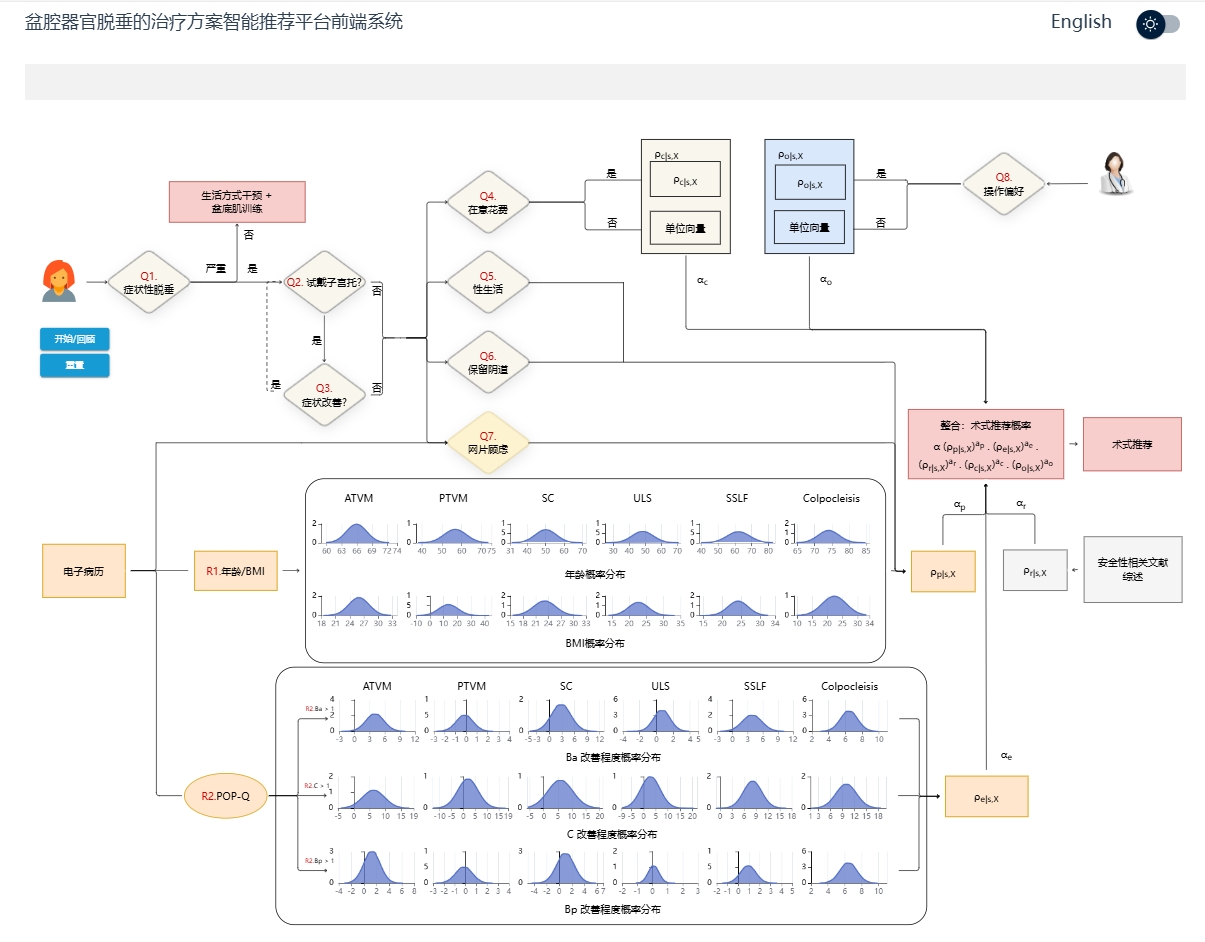On March 19, 2025, a research team led by Dr. Zhu Lan, Director of the Department of Obstetrics and Gynecology, and Dr. Sun Zhijing, Director of the General Gynecology Center at PUMCH, in collaboration with Tsinghua University, has published their AI decision-making support system for pelvic floor surgery in Nature journal Npj Digital Medicine (a tier 1 journal ranked among the top 5% by the Chinese Academy of Sciences, IF=12.4). The system comprehensively evaluates surgical effectiveness, risk, cost, complexity, and patient preferences to recommend transparent, personalized surgical plans. Its decision-making accuracy for Pelvic Organ Prolapse (POP) surgery rivals that of China's top pelvic floor specialists. To facilitate clinical application, the research team has made the system platform available online to provide intelligent decision-making support for primary care physicians.

POP surgical planning is a complex process that used to rely heavily on expert experience. With funding support from a Beijing Natural Science Foundation Key Project led by Dr. Sun Zhijing, the research team successfully developed the intelligent decision-making support system for pelvic floor surgery. This system represents a significant advancement from "experience-driven" to "data-quantified" decision-making for complex surgeries, built upon nearly 20 years of accumulated surgical and follow-up database information from PUMCH, with additional multi-center external validation.
Validation studies involving over 1,200 POP patients from multiple Grade A Tertiary hospitals across China demonstrated that the system's optimal recommendation accuracy reached 62%, comparable to recommendations from China's leading pelvic floor specialists. The system's top 3 recommendation accuracy reached an impressive 92%, significantly outperforming general specialists (81%) and primary care physicians without specialized training (61%).
The system achieved several innovative breakthroughs. It constructed a multi-dimensional quantitative surgical feature profile, encompassing five core dimensions: effectiveness, risk, cost, complexity, and patient preferences. The system also learns physician decision preferences from clinical data, adjusting dimension weights in real time to deliver dynamic personalized recommendations, supporting a truly individualized approach for each patient. The system's cross-hospital validation showed performance fluctuations of less than 2%.
Patient safety is the cornerstone of developing intelligent surgical decision systems. The research team overcame the "black box" limitations of traditional machine learning models by developing a logically transparent and interpretable decision support system. When recommending results, the system provides quantitative evidence, clearly demonstrating "the reason for choosing A over B", facilitating efficient doctor-patient communication. In application trials, the acceptance rates of system recommendations were 49% for gynecological pelvic floor specialists, 81% for general gynecological pelvic floor physicians, and 97% for primary care physicians without pelvic floor specialty training.
The research team noted that this intelligent decision support system offers remarkable scalability. Currently, it includes the most common POP surgical procedures for initial exploration, but the platform can readily incorporate additional new techniques or combination approaches in the future. This scalability will allow it to support decision-making for other diseases or more complex treatment scenarios. Moving forward, the team plans to continuously refine the system through clinical implementation, further improving its effectiveness and risk management capabilities based on comprehensive evidence from large-scale clinical data.
The research team emphasized that this system functions solely as a decision support tool, with physicians maintaining ultimate decision-making authority. While the system facilitates doctor-patient communication, medical decisions should still be made collaboratively between physicians and patients based on individual circumstances.

▲The intelligent surgical recommendation platform for POP
To support primary care, the research team has made the system available online for free. Primary care physicians can directly access the website to use one-click recommendations, dynamic interactions, and linkage to knowledge repositories. Informed by the system, they can make better, more individualized decisions, helping more patients benefit from such precision, scientific medical services.
Written by and pictures courtesy of Du Zhe and Liu Zhaoyang
Edited by Fu Tanping and Chen Xiao
Link to the article: https://www.nature.com/articles/s41746-025-01509-1?sessionid=-722678601
